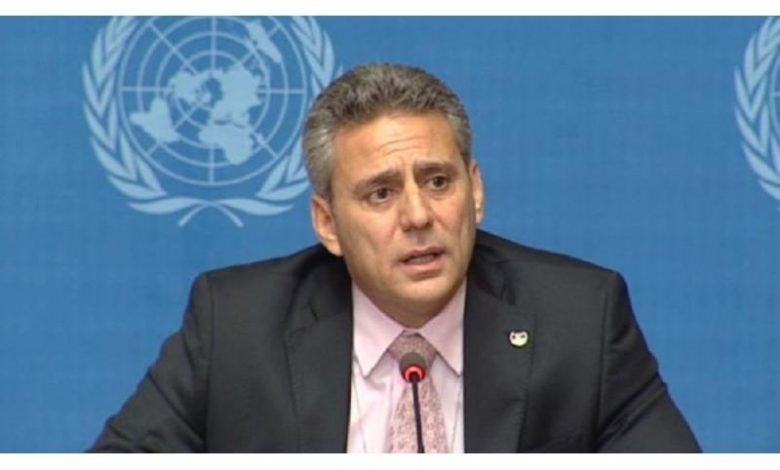Concerning the worsening humanitarian situation in the Gaza Strip, Muhannad Hadi, the UN Humanitarian Coordinator for the Occupied Palestinian Territory on Gaza and West Bank, expressed his profound concern in light of the mass evacuation orders issued by the Israeli forces, which have resulted in the displacement of ninety percent of the Strip’s population since October 2023.
In a statement, Hadi said that the displacement brought on by the hostilities poses a serious risk to civilian life, particularly in light of the repeated orders that force people to from their homes in appalling conditions. Evacuation orders are meant to protect civilians, but in practice, they have terrible effects that drive families to relocate, putting them at greater risk and making it more difficult for them to get the essential resources they need to survive in the face of this rapidly deteriorating situation.
According to Hadi, Israeli soldiers have ordered at least 250,000 Palestinians to relocate twelve times this month alone one order every two days on average.
Hadi went on, “Tens of thousands of civilians were told to leave four neighborhoods in Deir al-Balah and Khan Yunis just yesterday.” Families of humanitarian workers employed by several UN agencies and non-governmental organizations were also impacted. The help that humanitarian workers provide to other Palestinian displaced people is vitally necessary.
“If the goal of evacuation orders is to safeguard civilians, the evidence suggests that they have the exact opposite effect,” he declared. Families are forced to evacuate once more, frequently under bombardment, taking only the few belongings they can carry with them, to an area that is rapidly running out and experiencing congestion, pollution, and a lack of amenities.” Similar to the rest of Gaza, these regions are extremely unsafe and vulnerable, and residents are unable to access resources that are necessary for their life, like as shelters, medical facilities, water wells, and humanitarian aid.
He added, “The shutdown of pumps and desalination plants inside the evacuation zones has resulted in a minimum of a 70% reduction in the water supply in Deir al-Balah. Diseases, skin infections, and inflammation are spreading due to the acute lack of chlorine, which is needed to sterilize the water and whose supplies are predicted to last only one month.” polio, in addition to hepatitis A.
Hadi went on, “Civilians have become exhausted and terrified, as they rush from one destroyed place to another without an end in sight,” stating, “This cannot continue.”
According to Hadi, parties are required under international humanitarian law to safeguard civilians and provide for their fundamental requirements. It is imperative that we agree to a ceasefire, free prisoners, protect people, and permit humanitarian access as the only viable course of action.
Source: Petra News Agency



